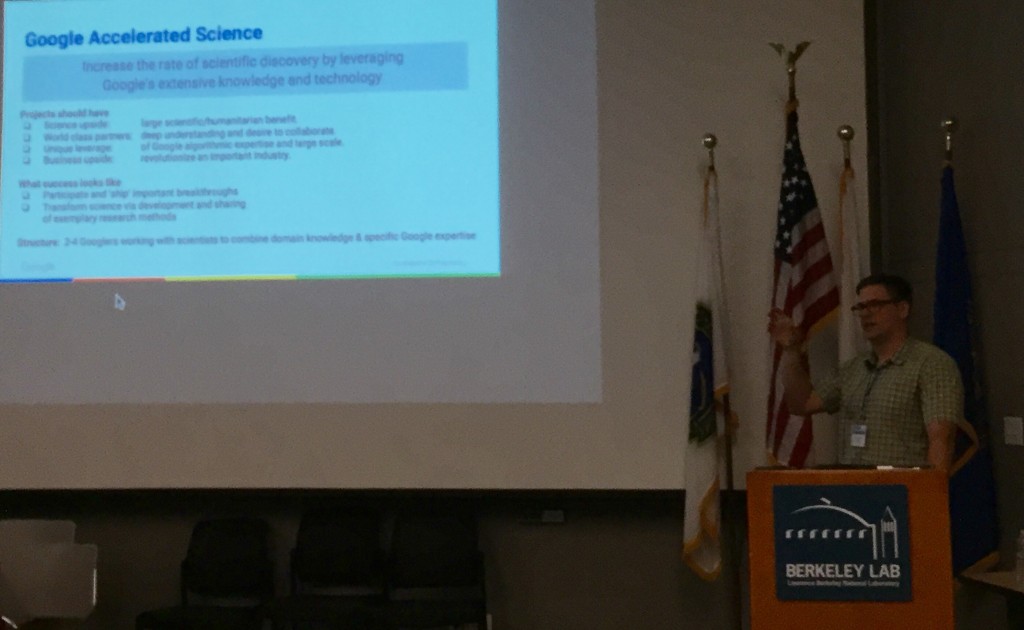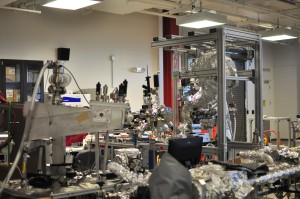Living in the Bay Area has a lots of perks, notably the climate and the people who live here– some are driven, and some maybe too much.
The Silicon Valley became fertile and successful when entrepreneurs started bringing hardcore scientific advances to the masses, with companies such as Fairchild Semiconductors, or innovative technologies, with companies such as Xerox and its Palo Alto Research Center.Nowadays, the silicon in the valley is mostly gone (I often joke that among my friends living in the Silicon Valley, I am the only one actually working on silicon… yet I don’t live in the valley:), and tech companies that have nothing to do with actual τέχνη. Yet the dreams of technology to save us all are still pretty alive. But it seems that it all has to do with hubris, or PR at best, and it is hurting actual science and those who make it.Tech entrepreneurs turned technologistsA common trend among successful tech entrepreneurs is to use the money they made to make them look cool, after they had to forfeit their do no evil mantra. There are different strategies, from Google/Alphabet funding “Moonshots” projects via Google[x], Elon Musk reinvesting his tech money to fund Tesla or Bezos’ funding of Blue Origin.There is also the cooperation of these corporation giants with pre-existing public research entities, like Google coming to Berkeley Lab to explain how they can “accelerate science”, as if researcher just needed to click “I’m feeling lucky” to let loose the hidden horsepower of human ingenuity.This sense of duty for is made beautifully clear in the latest New Yorker profile of Y Combinator’s Sam Altman :
Paul Graham, who was leaving soon after the dinner for a sabbatical year in England, told me that Altman, by precipitating progress in “curing cancer, fusion, supersonic airliners, A.I.” was trying to comprehensively revise the way we live.
But at times seems they are confusing movement with action :
“What’s it looking for?” I asked Altman. “I have no idea,” he replied. “That’s the unsettling thing about neural networks—you have no idea what they’re doing, and they can’t tell you.”
It somehow makes clear, if needed so, that these boys dreaming of robots and rockets have no clue about what science is, and that the sheer power of will (that got them here, though will and luck are often mixed up) can fix things all by itself.
There are other initiatives like the secretive, billionaire-backed plans to harness fusion (BBC), that seek out the solve problems that we haven’t been able to solve yet. But if it looks like a cure for a research system that is supposedly deficient, it fails to follow the Primum no nocere (do no harm) principle.Out of touch
At first, it looks pretty benign, and even helpful. When Mark Zuckerberg announces that the Chan-Zuckerberg Initiative will spend $3B over the years to cure all disease, it brings research in the spotlight and contributes to the necessary funding of science. But not only the amount is actually negligible (NIH spend $30B yearly, not to mention private companies), it casts a shadow on science : researchers are inefficient, and the logical conclusion is that only the superpowers of free market can rein them in and move humanity forward.
But though free market are efficient (they must be : goal of free market of free markets is efficiency in itself, not the pursuit of happiness or faded goals), and tech people very good it because selected by it, there is a fundamental misunderstanding : commerce and science are a different beast.If markets can “scale” exponentially in size, its effects doesn’t scale in time : when you buy a phone or get an haircut, you’ll have to come back to the shop after a while, because you cracked the screen or your hair has grwon. Science however has a compound effect that is often overlooked : when someone discovers something, it cannot be undiscovered. We will never again die from a great number of diseases or disconnect from the network (would it be electricity or information). Even if scientific theories sometimes get a kick, it’s because they are getting better, not because the previous ones were not true.Fix scienceThat being said, the way science operates nowadays has many flaws and should be fixed, e.g. by reforming the publication system or fully embracing the technologies that are available.But the problem isn’t researchers themselves. The ideas of 10xers in popular in the start-up culture, but is very difficult to transpose to research.As it turns out, many scientists have devoted their life to a single topic, and thinking that hiring the cream of the crop and putting them together hoping will produce better results that all the losers that came before them is foolish at best. The same goes with providing them the best equipment and the best tools will fix things– the apparently ludicrous Area 404 at Facebook is really not that impressive, when compared to the tools technicians in a lab can pull out from their years of experience.That being said, additional funding for research is desirable, since most of this funding will go towards hiring new scientists, what carries various indirect benefits. The first is that training scientists is good for the society as a whole, since they can then pollinate the industry with their knowledge (the opposite is true, too : Bell Labs scientists went on to populate federal labs). Second is that research is inherently driven by serendipity, and the more researchers you have, the most likely you are to make fortunate discoveries (e.g. penicilin). Lastly, humanity is headed towards a world where more and more menial tasks will be automated : the value will be concentrated into the hands of the people who can design new things (no wonder why the five largest companies in the US world are “tech” companies, but this is probably not without relations with the increased inequality). As cost of education keeps increasing, it would be sad to have a nation of lawyers, while doctors and PhD can be trained for almost free while conducting research.
Public research does work
Although public research is often seen as distant and disconnected from the real world. But it turns out that most of the technological advances made were funded by public research, and the profits are reaped by private companies, which actually do not do much to advance research (this is very well documented in “The Entrepreneurial State” by Mariana Mazzucato).
Anecdotal evidence on a project I’m involved with suggest that, despite the large overhead (3:1 in my federal lab), the cost of a research carried in a public lab is much cheaper (at least ten times) than in a company for similar results (this seems to be because of the shallow hierarchical structure in research labs : researcher have full control over their projects, they do not have the same organizational burden as companies, e.g. C-suite compensation that can be thought as a compounded overhead.)An extreme case can be seen in the pharmaceutical industry, where we’ve recently seen many surges in price, sometimes motivated by the idea that this revenue can be recycled to fund research for new medicine. A friend working for a large investment bank even stated that countries other than the US were not paying their fair share to research through artificially low prices– but this is baloney : profits from nearly-monopolistic companies are used to proceed to stock buy-backs, and research is mostly conducted by universities and research centers, who then create spin-out companies, bought in turn by larger companies after all the risks have been edged-out (FDA approval etc.)The issue is that the research labs are unable to capture the value they produce. Though it is somehow captured by the society in forms of taxes (sales, etc.), the value cannot be reinvested to fund more research, especially basic research with no direct applications.Impostor syndrome
Since there is no clear bottom line in research (apart publication (which by itself create anxiety; I have yet to meet a scientist who isn’t finishing two papers), many researchers suffer from the impostor syndrome. The inability to clearly identify their contribution when it ends up pooled with the rest of research can take a toll on researcher
The downside is that salaries for researchers : a young, term researcher will on average make half as much as her counterpart in the industry, while in some case carrying accrued debt. Countless PhD left academia to pursue a more lucrative career elsewhere.“That’s because I’m smart” : taxes should be paid regardless how smart you are
But this elsewhere is not helping ! Take for example Apple who was recently found guilty of evading taxation for €13B ! Compared to what’s “benevolently” given to charity, and how much it hurts local business, this is a no-brainer. A company sitting on a pile of cash, that doesn’t know what to do with it– why don’t you invest it in public research ? Of course, some US officials said they were hurt by the impenetrability of EU laws, without realizing that it’s the US itself that is being hurt.
C’mon tech industry, realize that disruption is just another word for destruction, and that we can only build meaningful things together as a society, not as individuals.
